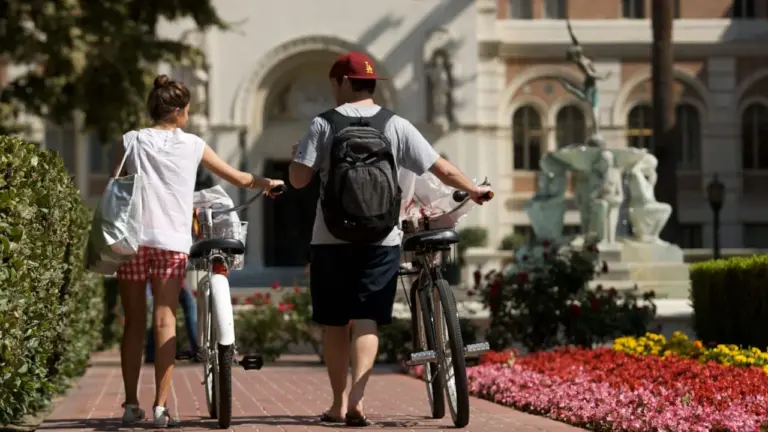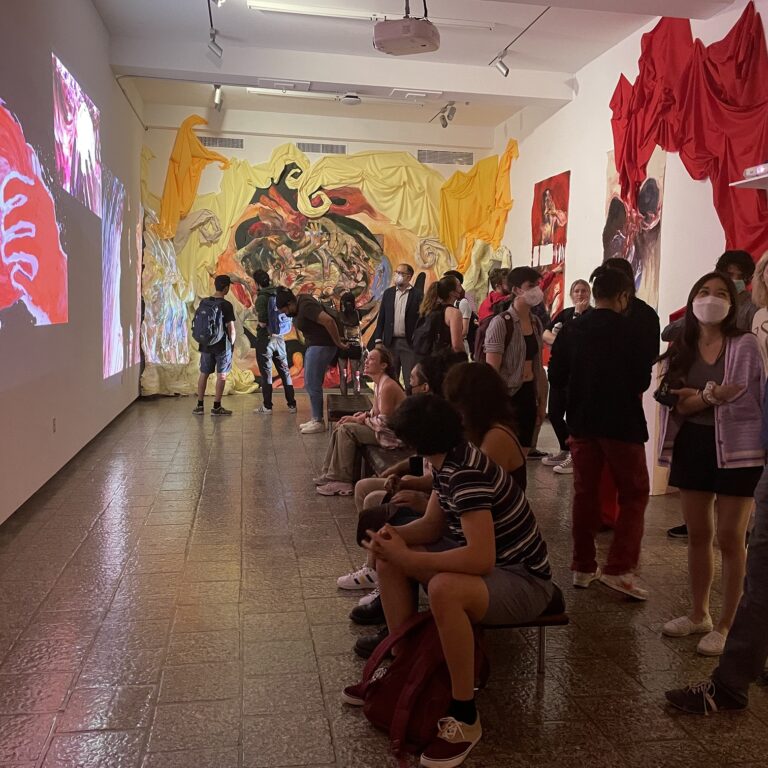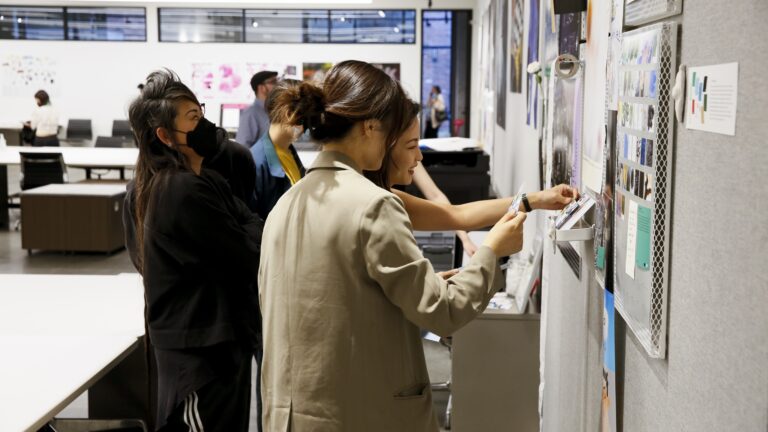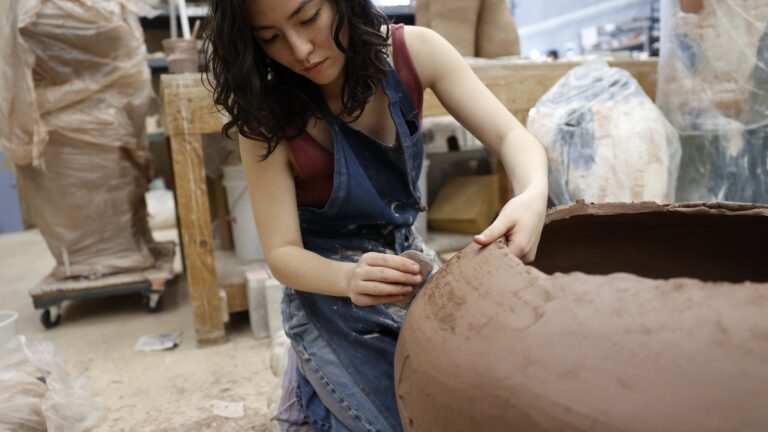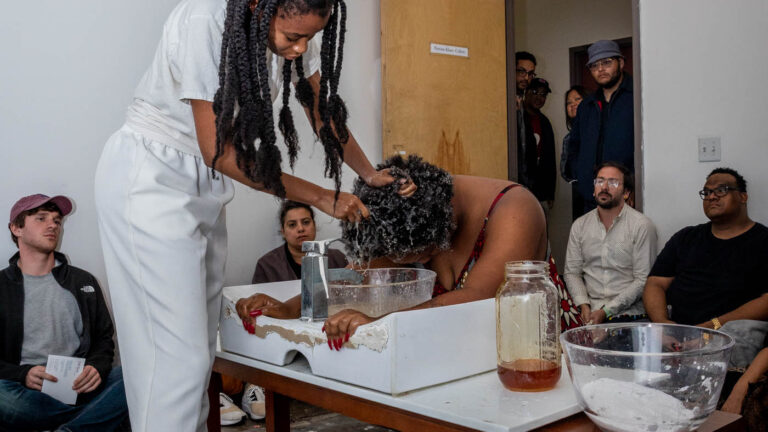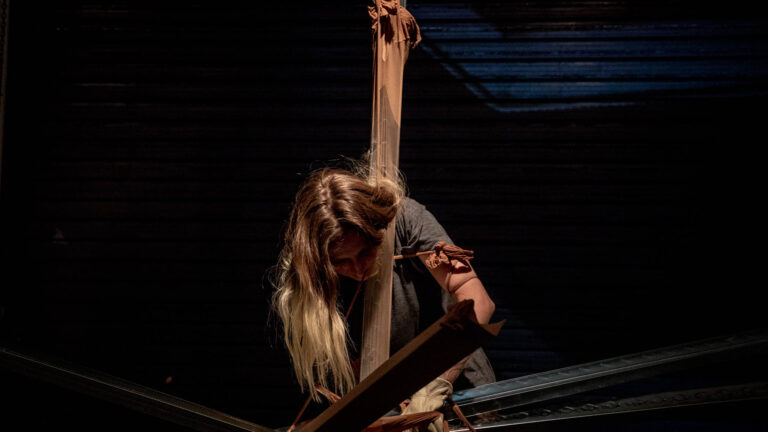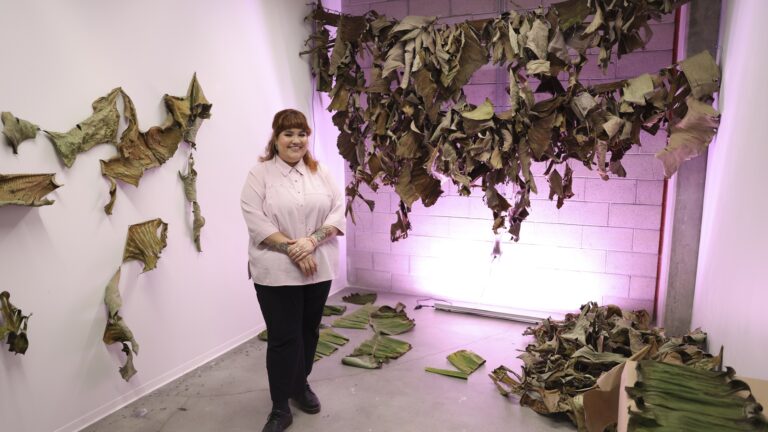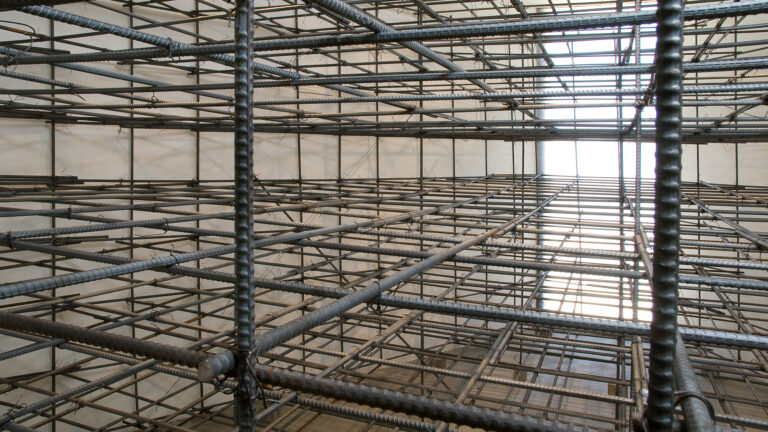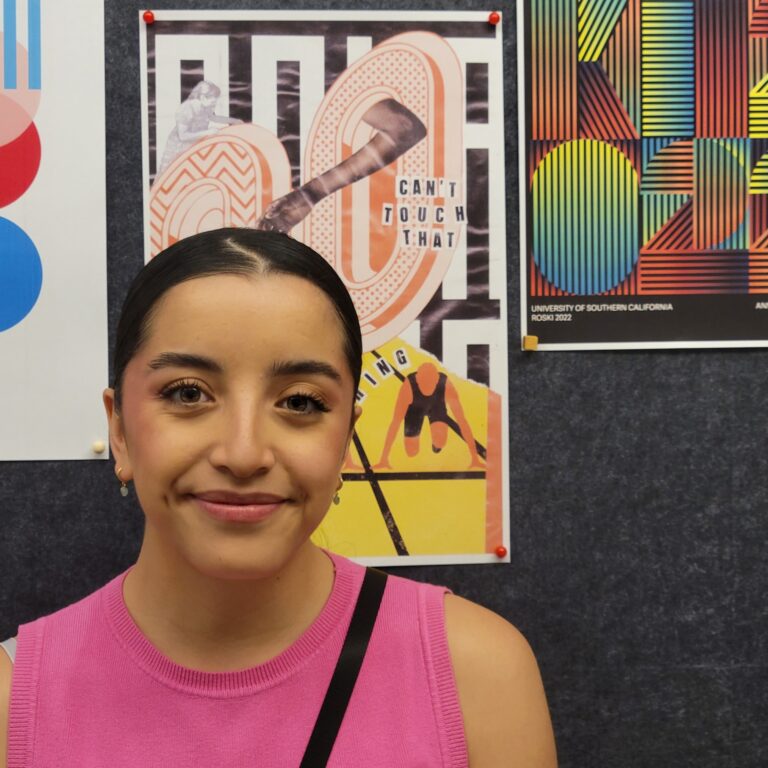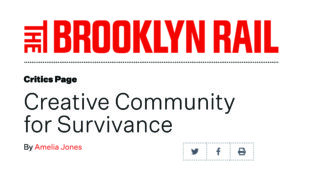The USC Roski School of Art & Design
Artists and designers from across the U.S. and around the world come to study at the USC Roski School—a unique environment for creativity, experimentation and collaboration in the heart of Los Angeles.
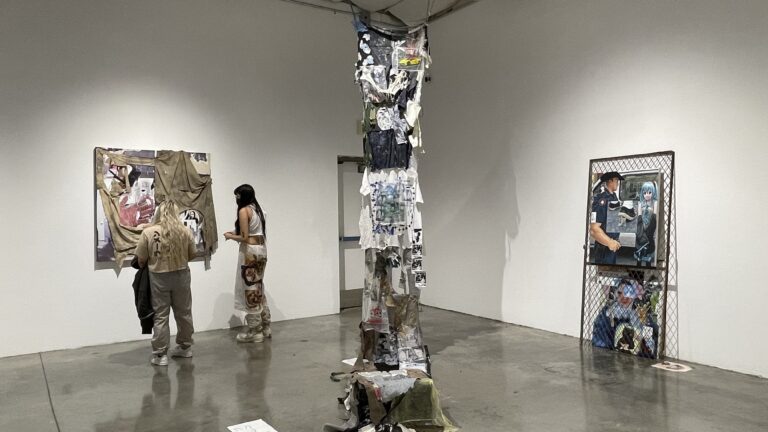
A Supportive Community
Small classes, studio immersion and a collaborative culture—at USC Roski you will join a close-knit community of internationally renowned faculty and talented students who share ideas and raise provocative questions. You’ll also connect with a remarkable network of alumni working in Los Angeles and across the country.
Our Programs
The Roski Vibe
We asked some students to describe how USC Roski feels to them. The responses tell a consistent story of warmth and support—not the competitive culture you may expect in an art and design school. The outcome: you learn from your peers, as well as from the Roski School’s dynamic faculty.
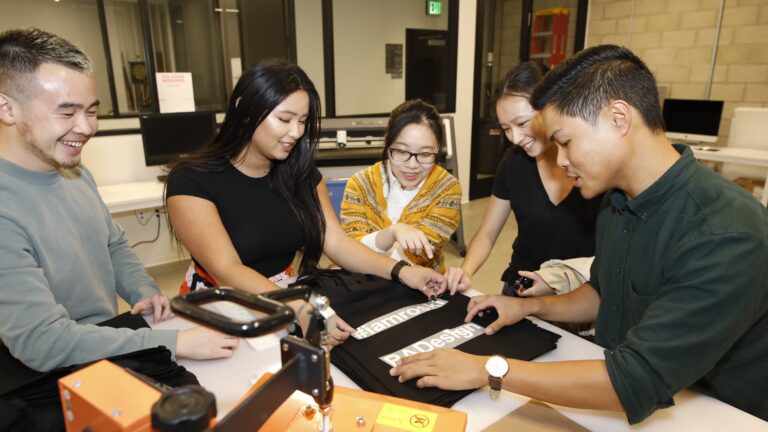
Life at Roski
An arts education in a small school, within a major university that has every activity and resource you might want, at the center of one of the world’s most exciting creative capitals—that’s Roski. With the L.A. Arts District next door and all of SoCal’s adventures within reach, you’ll have every opportunity to immerse yourself in the arts and enjoy the environs.
